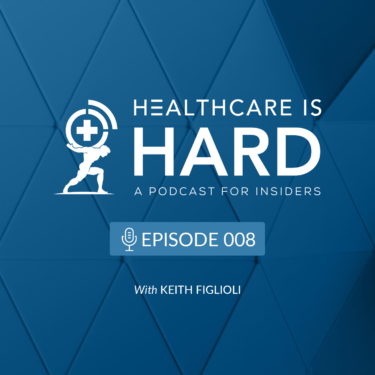Hurricane Katrina was an extremely destructive and deadly storm that shut down communities along the Gulf Coast for months and even years. While the scope and scale of this catastrophe are undeniable, it also opened up doors to help move towards a system that unites social care and clinical care, allowing medical professionals to practice great medicine while also addressing the non-medical drivers of health.
Dr. Karen DeSalvo was on the front lines of Katrina disaster relief and she vividly remembers these doorways opening. Delivering healthcare from atop ice chests and card tables in the streets of New Orleans, Karen came to three major realizations:
- As important as medicine was, there were a lot of other factors that mattered that she and other healthcare professionals had to prioritize as leaders in the community who people turned to for help.
- The most effective moments of care delivery came when people who didn’t typically interact – nurses, social workers, pharmacists, and others – united and worked together as a well-aligned team.
- Health systems should be created with a community, not for a community. Instead of creating a system around buildings and doctors, it’s more important to listen to what the community and the people in it want to prioritize.
Karen has a unique background, from her time as a physician in New Orleans before Katrina, to later becoming the city’s commissioner of health and then bringing her knowledge to Washington, DC where she became National Coordinator for Health Information Technology and then Acting Assistant Secretary at the U.S. Department of Health and Human Services.
In this episode of Healthcare is Hard: A Podcast for Insiders, Keith Figlioli spoke with Karen about how to change the way we think about peoples’ health and well-being by better aligning fundamental factors such as care delivery, public health, and social work in teams. Their discussion covers this and a wide range of topics, including:
- Rethinking Healthcare With Social Determinants at the Core – In Karen’s view, the only way forward is to find a sustainable business model that meaningfully addresses social determinants of health. This will involve rethinking how we can leverage twenty-first century tools, relationships, and data in order to make healthcare smarter, faster, and cheaper. Karen talks about areas of social determinants that have the biggest potential, and provides examples of programs that are already working.
- Avoid Medicalizing Social Determinants of Health – It’s important that we modernize social determinants, but we need to avoid medicalizing them. Karen talks about the easiest way to start – moving dollars from healthcare to partners that support the social care needs of individuals – and the long-term goal of developing social care and healthcare entities that take and manage risk together. But she cautions that healthcare must learn how to incorporate non-profits and social organizations, and not push them aside or overrun them.
- How Far Have We Really Come with Interoperability? – When Karen started at ONC/HHS, the digitization component of interoperability was complete. But, creating interoperability standards was not a priority when the 2009 HITECH Act was put into place, creating a unique opportunity for Karen to step in and figure out a path for making the data accessible and usable for people. While the data standards may not yet be perfectly harmonized, the last few years have shown that we’re making progress by simply making data available through APIs. And as a country, we’re continuing to get smarter and overcome the early mistakes to be able to tap into more data and insights that ultimately improve care.
To hear Karen talk about these topics and more, listen to this episode of Healthcare is Hard: A Podcast for Insiders.
